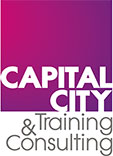I recently read a 1985 copy of ‘Iacocca: an autobiography’ and was surprised to find many crucial and timely lessons for today’s budding business leaders and managers. I cannot recommend it highly enough.
Lee Iacocca was president of Ford until 1978, then became CEO of the struggling Chrysler, making him the only person to lead two of the three big US automakers – the third being GM. He was an unorthodox character and became best-known for developing the Ford Mustang and for saving Chrysler from infamy and bankruptcy, which brought him celebrity status.
I am not usually one for biographies, but Iacocca was a great communicator and this reads like a cross between a fireside chat and a thriller. I am also suspicious of celebrity leaders – time spent on self-promotion is usually at the expense of the day job. But Iacocca earned his celebrity, rather than courting it.
It is a great bit of corporate history – for example, can anyone today imagine interest rates at 20% as they were in 1980? It is also a compelling book about management.
Management training
I would have liked to work for Iacocca. He does not take credit for success. Was he the ‘Father of the Mustang’, as he was often called? No, it was a team effort. He regularly namechecks his colleagues who did the hard yards, giving them credit for the key ideas and his success.
Iacocca was too successful at Ford and overshadowed chair Henry Ford II, which led to him being fired in 1978. How did he then turn around Chrysler?
One key to this success was to take his best team from Ford with him bit by bit – indeed two were there ahead of him. He was ‘Standing on the shoulders of giants’, as Isaac Newton (and Warren Buffett) would say, rather than a giant himself.
That is just a small part of the story. But there is a lot more delightfully good management sense in the book.
At CCT, we run online financial classes on bank and corporate credit analysis and we see that junior analysts often find assessing management one of their most difficult tasks.
It was a pleasure to see so much of what we teach about good management in our finance training running through this book. This includes respecting the firm’s core competencies and its people; managing with deep industry experience; client focus; always looking forward and investing in the future; and courage and decisiveness in a crisis.
Always invest in development
The section about Iacocca’s time at Chrysler is an education. The firm was on the brink of bankruptcy. But, while fighting fires, he never lost sight of the long game, investing in development of the next generation of cars.
One aspect that makes his story timely is how he persuaded the US government to bail out Chrysler with loan guarantees. Iacocca eventually convinced Congress that Chrysler was a systemically important company and its failure would lead to huge economic destruction because its specialist supply chain would disappear with it.
The episode is fascinating from a range of angles – political dogma in Congress; the convenient blindness to massive government guarantees to other industries; and the relevance to today as we rescue companies damaged by the pandemic.
Make industry great again
Iacocca concluded by airing his concerns about the US. It is striking how similar the themes of the 1980s are to those of today. He wrote about the budget deficit, which is now dramatically worse than it was then.
He talked about unbalanced trade too. In the 1980s, the ‘currency manipulator’ and ‘destroyer of US manufacturing’ was Japan. Today, it is China, but the problem is the same.
Iacocca’s final plea to the government to institute an industrial policy is also relevant today. Western foreign policy in China has failed. Maybe America does need a policy of ‘make industry great again’. Perhaps multinational companies are good for shareholders, but moving jobs and technology to cheaper locations is not so good for citizens’ wealth in nations like the US.
The free movement of jobs to low-cost countries has been a major factor in the relative impoverishment of America’s middle class in the last 30 years. So maybe Iacocca is the great US president it never had.
